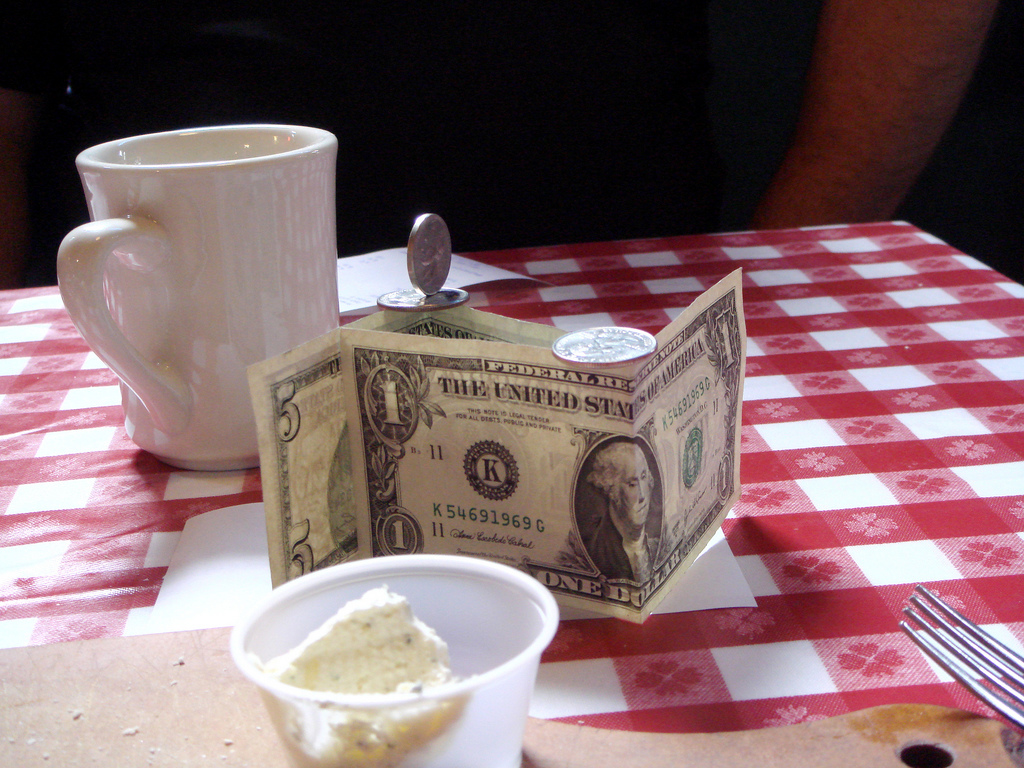Last week restaurateur Danny Meyer’s made headlines when he announced he would abolish the tradition of tipping servers in one of his restaurants. I am the co-owner of a restaurant, Sevy’s Grill, and I manage the books. I think this is an interesting discussion for Dallas restaurants.
First of all, I’m not against the end of tipping. Higher minimum wages (I am also not against this) would be a reality, but revenue from tipping can be a tempting flow of money to redistribute to achieve a “livable wage” for all. Abolishing it raises some issues that should be addressed before a restaurant owner makes a commitment to change their pay model. Several financial considerations should be anticipated, among those, how to pay everyone on the new scale.
IRS regulations and state laws limit who can share gratuities for service. It excludes everyone whose job isn’t related to servicing a guest, including management. In his email, Danny Meyer called this change a removal of a major obstacle in his company’s effort to provide “more meaningful career opportunities and advancement for our 1,800 employees.” To wit:
“Unfortunately, many of our colleagues-our cooks, reservationists, and dishwashers to name a few-aren’t able to share in our guests’ generosity, even though their contributions are just as vital to the outcome of your experience at one of our restaurants.”
I think Danny Meyer is brilliant. However he has the financial wealth and a large corporate structure that can spend capital figuring this out, unlike the smaller restaurant owner. And he is trying this policy out at only one of his many restaurants, which is hardly an “all in” gamble. While a “No Tip” policy is touted as creating a fair and equitable distribution of income, the template of who-should-be-paid-what appears to be more proprietary. So far all I’ve heard is “we’re figuring it out.”
Tom Colicchio was interviewed about these changes on NBC, said he has enacted the no tipping policy for lunch service at Craft in New York. While he is enthusiastic about the new pay model, he was also honest that he’s not sure if it will work for dinner service. He also indicated it requires a price increase, which when seen on a menu can drive guests looking for a restaurant somewhere else. And Colicchio also declined to be specific about how the division is being split between front and back of the house. That’s an important team-building dynamic in the restaurant business.
It’s a simple equation. Look at it in cooking terms: if you are dividing the pie among more people, but still want everyone to get the same amount of pie, you have to make a bigger pie. You can’t make the pie bigger unless you raise prices by more than the current average tip percentage. If you don’t make the pie bigger, then somebody (or several somebodies) has to have a smaller piece of pie.
Again, I’m not against this idea. I’m just bringing up some issues that a small business owner might want to consider first.
Restaurant owners need to read their leases. If you are in a percentage-rent lease agreement, the increase in prices may be subject to percentage rent, whereas gratuities typically are not. A restaurant grossing $3 million per year would see a minimum of $600,000 in additional income, times 5-8% percent, equals ouch. That could cause owners to cut staff.
Many other restaurant expenses– from insurance to dishwashing materials– are based on sales totals. These contracts will need to be renegotiated, that is if they legally can. If they can’t be, then the owner will pay a premium for the same amount of product or service they received before.
There’s also an income tax credit available to owners based on gratuities. It is passed through to individuals based on earnings. However its value declines as income increases. But for a small owner, or someone trying to draw in investors, it can be a significant return on capital. This too would go away.
The guest will be paying more and not just in marked up prices. Sales tax on the purchase will go up accordingly, as gratuities are not taxable but higher prices are. In Texas, even if the restaurant changed it to a “service charge” line item, that item would become taxable. Only gratuities, directly paid to the service staff, are exempt from sales tax. Score one for taxes!
Let’s be honest. Your sales staff and your servers have many choices where to work. The good ones live for those $300-a-shift tips. They are going to work where they think they can get the highest earnings. And a commission-based system is what they are used to. Until all the restaurants are forced to change, you’re going to be fighting against the old system for good employees. It’s not just the restaurant owners who need to embrace the new system.
Gratuities represent a large river of money that flows through a restaurant. Siphoning that flow is an enticing solution for a possible doubling of hourly minimum wages that is currently not allowed by law, tax regulations, and custom. Raising prices and ending tipping is not the only solution, and it may not pay off as planned for the guest, staff or owner.
In any event, it’s an issue worth considering. I’d love to hear your thoughts.





